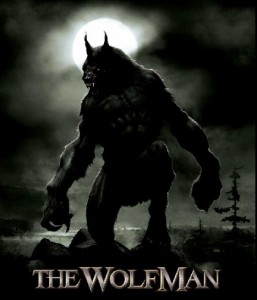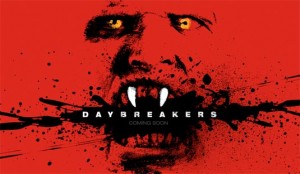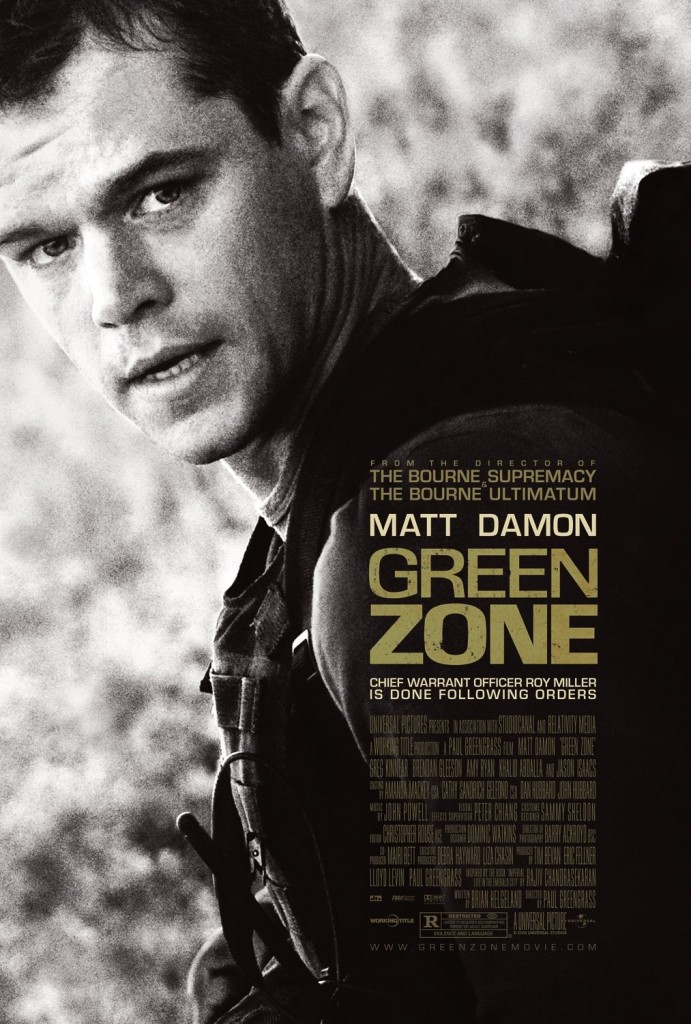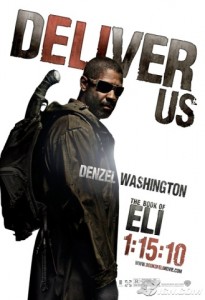Archive for the ‘Movies&Games Reviews’ Category
Green Zone
Rating: R (for violence and language)
Genre: Drama, Thriller, War
Run Time: 115 min.
Director: Paul Greengrass
Actors: Matt Damon, Greg Kinnear, Amy Ryan, Yigol Naor, Said Faraj, Khalid Abdalla, Raad Rawi
The 1980s Rambo franchise brought Sylvester Stallone more fame for his portrayal of a Vietnam vet who fights mistreatment at home and rescues POWs in Asia. Film critics criticized the movies, particularly Rambo: First Blood Part II, suggesting that the films represented a fantasy in which America had a chance to refightâ??and this time, winâ??the Vietnam War.
Much of the audience who showed up en masse to see the Rambo movies were too young to remember the truth about America’s involvement in Vietnam. Critics feared that core group may have been susceptible to the alternate history presented by Stallone’s movies. One main criticism was that the films were too war-happy, too conservative in their vision.
Green Zone, an Iraq War drama that reteams director Paul Greengrass with star Matt Damon, falls into the same trap as Rambo did, but this time from the political left. In the film, a U.S. Army officer tasked with uncovering weapons of mass destruction in Iraq learns that his efforts will never bear fruit because of shady dealings by U.S. officials who falsified intelligence. Angry at this betrayal, he confronts his adversary, rats out the official to a journalist who discovers she’s been spun by the same official, and exposes the government’s actions before the war escalates.
Set in 2003, the film stars Damon as Chief Warrant Officer Roy Miller, on the ground in Iraq to find weapons of mass destruction (WMD) that, frustratingly, aren’t turning up. He quickly concludes that the intelligence on WMD is bad and is not reassured by the insistence from haughty Clark Poundstone (Greg Kinnear) about the accuracy of the intel.
When Wall Street Journal reporter Lawrie Dane (Amy Ryan) befriends Miller, they work together to unearth the identity of a key source on WMD intelligence. CIA agent Martin Brown (Brendan Gleeson), a grizzled skeptic on U.S. Middle East policy, assists Miller in his efforts to counter Poundstone, while Freddy (Khalid Abdalla), an Iraqi, leads Miller to a group of Saddam Hussein loyalists who could form the core of an insurgency within the country.
The film, employing Greengrass’ trademark “shaky-cam” visual approach, throws viewers into the street-level dangers Miller and his men encounter as they search for WMD. However, the action is chaotic and not as coherent as some of Greengrass’ earlier films with Damon. Moreover, the timing of the film’s release is awkward, as it opens the weekend after Iraqi citizens went to the polls to participate in democratic elections that were broadly hailed as a model for the region. Yet the movie leaves room only for scoffing whenever a character suggests that a democratic Iraq might come from U.S. efforts in the country.
More problematic is the entirely predictable storyline. Anyone who followed the debate over intelligence in the run-up to the Iraq War, and in the aftermath of the American occupation, knows the story of Green Zone before it unfolds. It doesn’t help that none of the principal characters has more than one dimension. Miller, after a brief early stretch where he clings to the idea that he might turn up WMD, spends the bulk of the film barely containing his righteous fury. Kinnear exudes smarmy arrogance and nothing else. Ryan is a bit better as she slowly discovers that she’s been used, but her character isn’t in many scenes. Best of all is Abdalla, although his character, like Ryan’s, drops out of the film for long stretches, particularly toward the film’s finale, when his presence is sorely missed.
Greengrass and Damon teamed for two of the Jason Bourne films (The Bourne Supremacy and The Bourne Ultimatum), to much better effect. Although the third Bourne film revolved around issues that parallel some of the concerns in Green Zone, its main concern was a characterâ??Jason Bourneâ??and not a particular international conflict. Green Zone is about an issueâ??the Iraq Warâ??rather than about its characters, who are less individuals than stand-ins for viewpoints on the war. The good guys and bad guys are never in doubt.
The Iraq War hasn’t been a big winner at the box office, but this big-budget star vehicle will put that to the test. Shot by Barry Ackroydâ??who also was the director of photography on Kathyrn Bigelow‘s The Hurt Lockerâ??the film often looks great, even though the film’s rapid editing doesn’t allow viewers to linger long on any one shot.
Given that The Hurt Locker, fresh off its Best Picture Oscar victory, is being re-released the same week that Green Zone debuts, audiences have a clear choice: They can see Greengrass’ obvious, highly political film that screams, “Bush lied! People died!” or they can watch Bigelow’s apolitical depiction of soldiers in the battlefield and the complex toll such a lifestyle can take on a soldier’s psyche.
One film is preachy, one subtle. One tells, the other shows.
The better choice is obvious:Â Go with the clear winner.
CAUTIONS:
- Language/Profanity: Lord’s name taken in vain; lots of foul language, including several uses of the “f” word.
- Smoking/Drinking/Drugs: Beer drinking.
- Sex/Nudity: None; poolside images of women in bikinis.
- Violence/Crime: Gunfire, explosions, bombs and other war violence; sniper fire; man hit with butt of a gun, then slapped; helicopter shot down; abuse of suspects detained on battlefield.
Wolfman scares good reviews
 Release Date: February 12, 2010
Release Date: February 12, 2010
Rating: R (for bloody horror violence and gore)
Genre: Horror
Run Time: 102 min.
Director: Joe Johnston
Actors: Benecio Del Toro, Anthony Hopkins, Emily Blunt, Hugo Weaving, Geraldine Chaplin
“Never look back,” says a character in The Wolfman. “The past is a wilderness of horrors.” This messy, ineffective update on a classic horror tale suggests that the filmmakers should have looked back to earlier, better versions of the wolfman story.
Modern-day horror rarely takes itself so seriously. Rather than embrace a sense of atmospheric dread, as the best classic horror movies did, contemporary horror films concentrate on gross-out special effects, shock moments, post-modern irony (think the Scream films), or torture-porn (the Saw franchise).
A reboot of the 1941 Universal horror movie of the same name starring Lon Chaney Jr., Claude Rains, Bela Lugosi and Ralph Bellamy, this version of The Wolfman sounds promising. With Benecio Del Toro in the lead role as Lawrence Talbot, Anthony Hopkins as his father, John, and Emily Blunt as love interest Gwen Conliffe, the film has top-tier talent in front of the camera. Behind the camera, special-effects guru Rick Baker, known for his impressive, Oscar-winning werewolf transformations in An American Werewolf in London, is on board to give the transformations a modern quality that still honors the man-to-wolf transformations of an earlier era.With so much going for it, The Wolfman should offer a moody atmosphere, a few good scares and actors who set the right tone for the material. But it turns out the new film is merely “inspired by” the earlier Wolfmanâ??but doesn’t exhibit much inspiration at all.
The Wolfman begins with the appearance of the following text: “Even a man who is pure of heart and says his prayers by night may become a wolf,” suggesting a serious exploration of religious themes in conjunction with the story of a lycanthropeâ??a man who changes into a wolf during a full moon. It’s 1891 in Blackmoor, England, and the residents don’t know how to counter the attacks of a wolfman. Many claim the beast is the devil himself, while others believe they have been cursed. A preacher uses the story of Nebuchadnezzar to suggest the possibility that God has a precedent for turning men into beasts.
The religious explanations suggest a provocative, theological drama at the core of the wolfman’s story, but it’s all merely dressing for the tale of tortured soul Talbot (Del Toro), who returns to England to investigate the death of his brother at the hands of a wolfman. Also investigating is Scotland Yard’s Aberline (Hugo Weaving), but it’s a gypsy woman (Geraldine Chaplin) who holds the key to understanding what’s happening.
Talbot is estranged from his father, who quotes the Prodigal Son story to his returning offspring more than once, but again, there’s nothing more to this biblical reference. The father is slightly deranged and the older brother is dead. Lawrence falls for Gwen, his deceased brother’s former love. For no apparent reason, Gwen reciprocates. But then Lawrence is attacked by the wolfman and fears his own transformation at the next full moon.
That’s pretty much the gist of the story. The rest consists of increasingly grisly wolfman attacks that include multiple decapitations and flesh-ripping moments, but little in the way of mounting suspense. Were there any genuine chills during the film, The Wolfman would deserve nominal credit for minimal effectiveness, but the film never rises to that baseline expectation. A couple of jump-out-of-your-seat moments are due mainly to loud, sudden sound effects, and never to any spine-tingling sense of dread that effective horror films supply. A man-into-beast transformation sequence set in an asylum comes closest to a memorable moment in The Wolfman, but the film is so lackluster for so long before that moment arrives that it fails to rouse the interest it might have merited had the earlier portion of the film worked betterâ??or at all.
It’s no surprise to learn that The Wolfman was a very troubled production. It went through a few directors during its development, with the studio ultimately bringing in Joe Johnston (Honey, I Shrunk the Kids, Jurassic Park III) and expert film editor Walter Murch (Apocalypse Now) to salvage the film.
If this is the salvaged production, it’s hard to imagine just how much of a mess the film was before Johnston and Murch put their stamp on it. The Wolfman is more a story of a missed opportunity than it is of a werewolf. It’s a bad miss, not even close to effective at any moment during its feature-length running time. That’s too bad for those who long for a return to the old-fashioned chills of Universal’s classic horror films, or for those hoping for a step back from the shockfests that define modern horror cinema. Those films, while perverse and disgusting, are effective in their own way, providing what their audience wants to see. Why can’t today’s movie studios deliver, at minimum, a competent update on classic horror tales like The Wolfman?
The complete failure of this latest effort bodes ill for future attempts at recreating old-fashioned thrills and chills at the multiplex.
CAUTIONS:
- Language/Profanity: “D-mn”; “holy mother of God.”
- Smoking/Drinking/Drugs: Cigars are offered.
- Sex/Nudity: Dream imagery includes a naked woman shown from behind, with the curve of a breast visible; some kissing.
- Violence/Crime: Man slashed in face and stomach; a corpse is shown; a dead woman has a razor in her hand and a pool of blood beneath her; wolfman attacks several men; a man’s back is shown, flayed open; wolfman slices fingers off a man’s hand, then pierces a man’s neck, and his claws are shown coming out of the front of the man’s mouth; wolfman tears flesh from a man’s neck; limbs are ripped from bodies and tossed aside; attempted suicide; decapitations; Lawrence is struck with the butt of a gun; man treated in an asylum with injections, and by being dunked in ice-cold water and given electro-shock therapy; “kill me,” a man pleads, right before he’s killed; man is thrown out a window and is impaled on a gate below; two werewolves fight.
- Religion: The film opens with the saying, “Even a man who is pure of heart and says his prayers by night may become a wolf”; talk of “deviltry” and speculation that the wolfman is from the devil; a minister preaches on the power of Satan to change people into beasts, and uses Nebuchadnezzar as an example; Lawrence is told that “the darkest hours of hell lie before” him, just before he transforms into a werewolf; a man calls himself cursed and damned, and is said to have been forsaken by God; Lawrence crosses himself, prays, and says there is no help for him; a woman discusses the possibility of the existence of God; gypsy lore factors into the story; prodigal son story is referenced multiple times.
“Daybreakers” Shows Vampire Genre Still Has a Heartbeat

Release Date: January 8, 2010
Rating: R (for strong bloody violence, language and brief nudity)
Genre: Horror
Run Time: 98 min.
Director: Michael Spierig and Peter Spierig
Actors: Ethan Hawke, Willem Dafoe, Sam Neill, Michael Dorman, Isabel Lucas
No? You’re tired of the Twilight hype, right? Enough with True Blood! Somebody needs to put a stake through the popularity of the genre and soon. Are you with me?
Hold on to those bloodthirsty notions for a moment. Turns out that a little thoughtfulness goes a long way. Daybreakers takes the genre in some new and interesting directions, but it can’t memorably resolve its story. With strong atmosphere and respectable performances from familiar actors, it has the ability to jolt viewers with a few shocking moments that will satisfy people looking for some gore to go with the more thoughtful aspects of the story. But the filmmakers’ attempts to cater to the basest impulses of today’s horror-movie audiences ultimately work against the movie.
Edward Dalton (Ethan Hawke) lives in a world overtaken by vampires. A montage of news headlines during the film’s opening moments tell the story. Ten years earlier, a single bat caused an outbreak that led to vampires taking over the populace. Humans were given a chance to join the vampires. Those that resisted became enemies of the state. Posters of Uncle Sam no longer shout, “I want you!” but “Capture humans!” That’s because the supply of human blood that vampires need to sustain themselves is drying up, and their increasing desperation for the fluid effects even such things as their “coffee,” which is now only 20% real blood, rather than 100%. It’s making the vampires angry. They need their fix.
Dalton is a vampire, but he won’t touch human blood. He’s employed by a firm working on a blood substitute, but the company’s experimental efforts keep going spectacularly, fatally awry. Complicating these efforts is the head of Dalton’s company, Charles Bromley (Sam Neill), who may not be as altruistic as Dalton. After all, what profit is there in altruism?
When Dalton encounters Audrey (Claudia Karvan) and Lionel (Willem Dafoe), they pursue a solution to save humanity. All they need is the cooperation of trustworthy vampires like Edward to perfect their proposed remedy.
The story isn’t groundbreaking, but it plays surprisingly well, at least during its first half, when the film’s neo-noir atmosphere is reminiscent of great sci-fi films like Blade Runner. Daybreakers‘ story also can be read as a metaphor for the risks of depleting the world’s resources. The film looks stylish, and Hawke brings a brooding thoughtfulness to the role of Dalton. That’s the good news.
The rest is standard stuff. Neill gives a boiler-plate performance as a sketchy businessman more interested in profits than in people’s welfare. The second half of the film includes action-movie chases and the obligatory set-up for a sequel. The best thing about the latter part is Willem Dafoe’s hammy performance as Lionel, who knows the secret to saving humanity. He keeps things more interestingâ??and even funâ??than they might otherwise have been with a lesser actor in the role.
Daybreakers isn’t, in the end, a particularly good film. Its original ideas are overcome and outweighed by genre clichés. But it does take a fresh approach to the genre, and provides a more cerebral experience than might be expected. Maybe another filmmaker will take the ball that Daybreakers dropped and run with it.
CAUTIONS:
- Language/Profanity: “go–amn” and other misuses of God’s name; “s-it”; the “f” word, including “motherfu–er”; “b-tch”; “s-it.”
- Smoking/Drinking/Drugs: Pervasive smoking.
- Sex/Nudity: Nude humans are shown hooked to extraction devices, with nether regions obscured but chests exposed; a crude comparison to inexpensive prostitutes.
- Violence/Crime: The police use a shock device to subdue unruly vampires; naked humans are hooked to devices that extract their blood; humans blood is shown several times; a man vomits green fluid and the skin on his face bubbles; a man explodes, spraying blood and innards everywhere; a car accident; bow hunting and shooting of humans; vampires attack, bite necks and drink blood, as well as lick blood off surfaces; a man slices a vampire open and decapitates him; lots of guns and shooting; a vampire is impaled; explosions; a vampire is ejected from a car, body aflame; a woman cuts her wrist and bleeds into a cup; needles and syringes shown; a person is struck with the butt of a gun; Edward catches fire several times; armed troops attack; a female vampire drinks blood from her own wrist; dead bodies in a cabin are shown; vampires pulled by a vehicle in the light, which causes them to burst into flame; a man’s head is yanked off his body, which is ripped apart.
- Religion: Immortality is said to have solved the problem of fatal illnesses; immortality on earth is a relief for those who fear facing death.
- Suicide: A young girl greets the dawn, realizing that the sun’s rays will kill her.
How Christian is the New Denzel Washington Movie ‘The Book of Eli?’
Release Date: January 15, 2010
Rating: R (for some brutal violence and language)
Genre: Action, Drama
Run Time: 118 min.
Director: Albert and Allen Hughes
Actors: Denzel Washington, Mila Kunis, Gary Oldman, Jennifer Beals.
“The days are coming,” declares the Sovereign Lord, “when I will send a famine through the land– not a famine of food or a thirst for water, but a famine of hearing the words of the Lord. “â??Amos 8:11
“At any time, and most in a time of trouble, a famine of the word of God is the heaviest judgment. â?¦ The most amiable and zealous would perish, for want of the water of life, which Christ only can bestow.”â??From Matthew Henry’s Concise Commentary on Amos 8
End-of-the-world scenarios are all the rage at the movies. Last year, the mindless popcorn flick 2012 was a big hit, while an adaptation of Cormac McCarthy’s The Road, a father-son survival tale set among cannibals and killers after an unspecified catastrophe, failed to find a sizable audience.
The Book of Eli continues the string of apocalyptic tales. It has style, it has action, but it also has something that sets it apart from even the best mindless action films. It has a point: The Word of God can be used for both good or ill, but a world without the Word is a hopeless place.
The film gives audiences a bit more to chew on than the standard action blockbuster. It suggests that a ruined civilization can be rebuilt one of two ways: under the thumb of a power-hungry tyrant who preaches his own distorted version of Scripture, or by getting the Word of God into the hands of others.
Eli (Denzel Washington) is a wandering man on a mission. Following a cataclysmic event decades ago that led to mass Bible-burningâ??the details behind the actions are left vague, but we’re told that some survivors blamed religionâ??a voice directed Eli to one of the last remaining copies of the King James Version of the Bible. The voice told him to go West, and 30 years later, he’s still on his journey.
Shoes are a necessityâ??Eli removes the shoes from a corpse early in the filmâ??but so is food. He survives by bow hunting, and any kind of meat will do (a hairless cat is Eli’s first victim in the film).
Eli also has divine help. The voice that spoke to him years earlier promised to protect him, and one way that protection manifests itself is through Eli’s deadly accuracy with a sword. His first encounter with a gang of cannibalistic thugs is no contest: Eli cuts off one man’s hand at the wrist, then kills the rest of the man’s gang in quick succession.
It’s one of many grisly scenes of killing in this violent, “R”-rated film. Christian viewers may see the violence, always in self-defense, as justified given the film’s grim survival scenario, but directors Albert and Allen Hughes, known for violent films like Dead Presidents, From Hell, give the scenes an aggressive style designed to satisfy viewers’ bloodlust.
Eli’s nemesis is Carnegie (Gary Oldman), the leader of a dusty town who reads any book his men can acquire for him. But there’s one book he wants most of allâ??a Bible. He remembers the days before the event that ended civilization as we know it, and the book’s power over those who believe in its message. He wants to build his town, then expand his empire by preaching his own version of what the book contains. The distorted message won’t matter to the illiterate populace, who won’t be able to challenge Carnegie’s deliberate misinterpretation of Scripture.
The Book of Eli boils down to a confrontation between these two menâ??one of whom wants the Bible for his own purposes, and one who wants it to complete a divine mission. There’s a woman, Solara (Mila Kunis), who comes to believe in Eli’s mission, and another (played by Jennifer Beals) whose allegiance to Carnegie is challenged by Eli’s arrival. But their characters aren’t well developed.
The film’s view of revelation may upset some Christians and hearten others, depending on their views of extra-Biblical revelation. While the Bible is still available, it is no longer widely available. Eli knows his Bible; he reads it every day. But his mission isn’t laid out in Scripture. It comes to him directly, through a voice that only he can hear. Without the voice, Eli never would have found the book. He never questions the mission he’s been given, although it’s not clear until late in the film why he’s been told to do what he does. He walks by faith, not by sight, and his faith is ultimately rewarded.
The Hughes brothers’ film isn’t perfect even by action-movie standards. It has a few long lulls, and its female characters are largely inconsequential. What elevates the film from the mediocrity is a twist ending that is genuinely surprising, and the Bible’s centrality to the film’s message of hope and redemption for mankind.
The Book of Eli isn’t a particularly adult film, but it’s also not for kids. It’s rough going in spots, with brutal killings and suggestions of sexual violence. Despite those harsher elements, the film is edifying in showing God’s divine powerâ??through protection of those He loves, but also through the preservation and propagation of his revelation. It’s a Hollywood blockbuster that builds up, rather than tears down. Let’s hope it’s the start of a trend.
CAUTIONS:
- Language/Profanity: Lord’s name taken in vain; several obscenities, including the “f” word, the “s” word, “go–ammit.”
- Smoking/Drinking/Drugs: Drinking in a bar setting.
- Sex/Nudity: None, but Eli wipes down his upper body and reaches down into his pants; a woman shows off her cleavage and tries to lure a man into a trap.
- Violence/Crime: A gun is shown next to a corpse; a cat is shot and killed by an arrow; human skulls; a body shown hanging from a rope; Eli cuts off a man’s hand with a sword, then kills several other men who attack him; Eli delivers a death blow to a wounded man; people are shot and killed; a woman is thrown down and assaulted; cannibalism is mentioned; Eli throws a man’s head against a bar, causing him to bleed; men are shot through the groin area and upper body with arrows; a bird is shot out of the sky with an arrow; Eli and Solara fall through a trap door; an extended gunfight between Eli’s friends and Carnegie’s men; grenade explosions; a man is shot in the gut at point-blank range.
- Religion: A man is told that he’ll be held to account for the things he’s done; a reference to the Fall and to God’s curse in Genesis 3, just before Eli kills several people; Eli says grace with Solara, and later she says grace with her mother and Carnegie; Eli says he grew up with the Bible and knows its power; Carnegie wants to use the Bible as a weapon, a way to keep people under his sway; Eli is said to be “protected somehow; Eli says he reads the Bible every day, and he recites Psalm 23; Eli says a voice led him to find the Bible, to take it to the West, and that he’d be protected; Eli says God is good all the time; the message of Scripture is said to boil down to doing more for others than you do for yourself.
Head 2 Head Dance Battle
Platinum Dance group were the overall Head 2 Head dance batlle in Kenya in the year 2015, December 18th
















